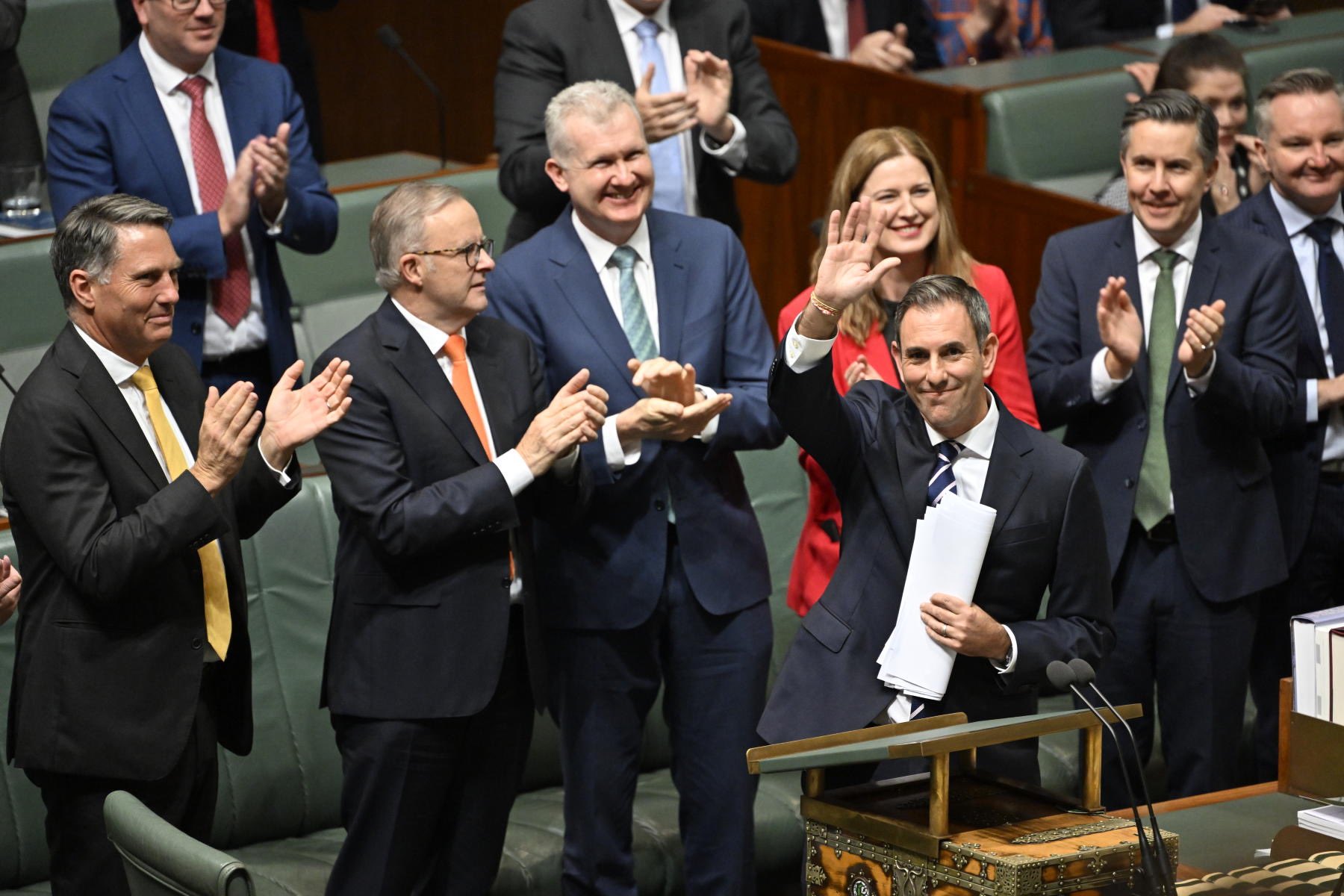 As always, Tuesday night’s Budget delivered very few surprises, with most of its contents strategically leaked to the media in the days and weeks prior to Jim Chalmers’ big moment.
As always, Tuesday night’s Budget delivered very few surprises, with most of its contents strategically leaked to the media in the days and weeks prior to Jim Chalmers’ big moment.
Spoilers have been the name of the game in Canberra for a long time, designed to ensure there’s no big shocks on Budget night itself, and to test the waters just in case they’ve read the room horribly wrong.
Jim Chalmers had plenty to crow about on Tuesday night: the Budget is back in black for the first time in 15 years, with the government on track to deliver a $4 billion surplus.
The forecast ahead is much better than what the previous Coalition government was predicting, but one question remains: does anybody care?
Politically, and for the country as a whole, it’s good news, and Labor is eager to quash the constant talk that it doesn’t know how to manage money. A budget surplus certainly puts paid to that, for now.
But Chalmers’ trademark smile would have done little to ease the pressure in lounge rooms across the country on Tuesday night, as cost-of-living pressures increase and more love letters from banks about interest rates land in the mailbox.
Labor campaigned strongly on wage growth and easing cost-of-living pressures during the election campaign but since coming to power has conceded much of those challenges are outside of the government’s control.
There is some action it can take, of course. As part of the Budget on Tuesday night, Chalmers announced that pensioners, people on other income support payments and some small businesses would have their energy bills subsidised by up to $500.
It’s a win, but here’s the problem: people of all income levels are feeling the pinch at present, and there is a growing discontent from middle Australia that very little help comes their way when it comes to tackling cost-of-living.
A family living in Penrith right now with two jobs, not on income support and raising a couple of kids still very much shrieks in horror when the electricity bill lands every quarter.
They’re still trying to figure out cheaper meals to curb the rising cost of heading to Woolworths or Coles, and are scrapping planned holidays.
Those on Job Seeker will get an extra $40 a fortnight, but a hard working family in Penrith is likely sitting back, looking at that and wondering what they need to do to get $40 extra in their pocket.
Governments like to be seen as helping those who need it most which is why pensioners, low income earners and those on support payments are always front and centre with major announcements.
And not for a moment am I suggesting that shouldn’t be the case; it is a government’s responsibility to ensure support gets to the right people.
But more and more people are feeling forgotten by governments.
A couple without kids, trying to get ahead, would look at the Budget on Tuesday night and struggle to find anything that speaks to them. They would feel that because they’re not considered “on the brink”, they’re on their own to sort things out.
None of this is to suggest Chalmers could have or should have necessarily done better.
Governments can’t just hand out money to everyone, except for extraordinary circumstances, and this will forever be the challenge of being in charge of the nation’s purse strings.

But out there right now, constant interest rate rises and soaring prices of basics have otherwise comfortable individuals and families not just deciding to cut Netflix or Stan, but to get a second job.
That’s the kind of territory we find ourselves in at present.
We have a generation of homebuyers mortgaged to the hilt, who bought when interest rates were at record lows.
Indeed, I bought my first house back in 2011 – and the first time I experienced an interest rate rise was last year.
Anyone unprepared for such increases, potentially hanging by a thread as it was, would find themselves in real trouble at the moment, especially those about to come off fixed rate mortgages.
Even if you’ve done well for yourself in the last decade or so, much of it is being eaten away: petrol prices almost doubled, and have barely come down from their highs; grocery bills skyrocketed; an interstate holiday feels like a financial burden and electricity prices have you questioning every light left on for a second longer than it should be.
And along the way, a Labor government came to power last year on a promise of higher wages and cheaper electricity prices.
For many people out there today, neither has happened, or will happen any time soon.
Small business is the backbone of Australia but if you find anyone employed in private enterprise at the moment who is getting regular pay rises, you’ve found a rare soul indeed.
Labor has to be very careful with how it sells this Budget.
Chalmers and Anthony Albanese deserve their moment in the sun, but their celebration about a Budget surplus, while so many Australians are wondering how they’ll pay for childcare next week, must be tempered.
Labor came to power because much of middle Australia hoped that it would spark change in their personal circumstances: a change yet to eventuate.

Troy Dodds
Troy Dodds is the Weekender's Managing Editor and Breaking News Reporter. He has more than 20 years experience as a journalist, working with some of Australia's leading media organisations. In 2023, he was named Editor of the Year at the Mumbrella Publish Awards.
